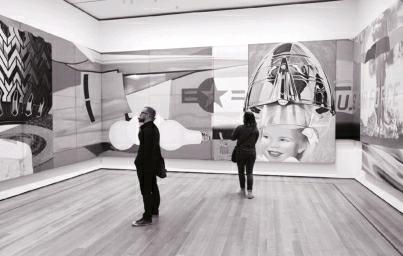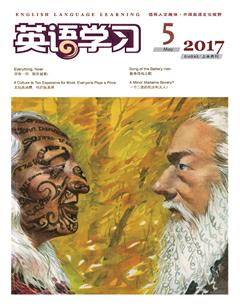文化高消费,代价孰买单
By+Jonathan+R+Goodman
It was in 2012 that Major League Baseball1 ran an ad showing generations of parents sharing the beloved American pastime with their kids. But it was already too late: in 2012, the average price for tickets to the World Series was nearly $1,000—compared with just $2 for the same seats in 1963. Cost for two to attend even a run-of-themill2 baseball game in 2016 is nearly $80, what with $6 per beer, almost $5 for a hot dog, and $16 to park the car.
Using baseballs cultural status to exploit fans is part of a long, dark trend: the tendency to milk the masses for what ostensibly belongs to everyone.3 In the Middle Ages, quaestores (pardoners) granted followers of the Catholic Church indulgences,4 which were believed to lessen the punishments of ones sins. At first, indulgences were given for acts of piety and prayer but, over time, were sold by members of the Church for money. This practice became so common, and the prices so extreme, that the Protestant Reformation was, in part, galvanised by Martin Luthers outrage at this industry of the Church.5
The unaffordability of salvation continues to this day. One hefty toll can be seen in the price of food.6 We pay for belief: Kosher7 meat costs 20 per cent more than non-Kosher meat. We pay for health: exposure to pesticides can increase the risk of developing cancers such as multiple myeloma—yet organic foods are substantially marked-up,8 sometimes to twice as much or more than non-organic varieties. We pay for ethics: in the European Union, eggs are marked so we know when they come from caged hens (abusive), semi-free-range hens(better), or free-range (where they can roam, mostly free). Organic, free-range eggs are the most costly of all.
Cultural, religious and culinary monopolies can be found in any country.9 Construction workers for the 2016 Olympics in Brazil complained that they couldnt afford tickets to any of the games events. Yet the owners of sports teams can make hundreds of millions in profits each year.
Tickets to The Museum of Modern Art in New York cost $25 for adults, which, as Michael Rushton—a lecturer in arts administration at Indiana University in Bloomington argues—is far less expensive than a night at the New York Philharmonic or the Metropolitan Opera.10 Yet the comparison reveals only the blindness of the elite: yes, the opera is expensive, but does that mean that $50 is an affordable way for two college students, or two baristas,11 to spend an afternoon?
In London, some of the most impressive museums in the world are free for everyone. Public Theaters “Shakespeare in the Park” series puts on the worlds greatest plays for nothing in New Yorks Central Park. Without constant vigilance12, culture drifts from us slowly: in 1972, The Museum of Modern Art in New York was free, though you could donate what you wished.
Without public access, a culture becomes dead, an inert shell that serves as a shill for profit, while too rarefied and remote to thrive.13 The quaestores of modern times use health, religion, and access to sports and art just like those of the Middle Ages used salvation to exploit people by pricing what they value too high. Only by exposing these cultural monopolies can we prevent what we cherish from moving out of reach.
2012年,美国职棒大联盟发布了一则广告,显示了几代父母与他们的孩子共享珍贵的美国休闲时光(观看棒球比赛)的场景,但这为时已晚。2012年,世界大赛的平均票价将近1,000美元,而在1963年,同等座位票价仅为2美元。2016年,两个人仅是观看一场普普通通的棒球比赛就要花费近80美元,其中包括一杯啤酒6美元、一个热狗5美元,还有停车费16美元。
利用棒球的文化地位来剥削粉丝,部分暴露出长久以来的一个不良趋势——榨取大众那些本就属于他们的东西。在中世纪,天主教徒可以从负责审理刑事案件的法官(卖赎罪券者)手中获得赎罪券,并相信能以此减轻对自己罪行的惩罚。起初,赎罪券通过虔诚的行为或祷告就能获得,然而过了一段时间,教会人员开始利用售卖赎罪券来赚钱。这一现象如此普遍,价格又如此之高,以至于宗教改革爆发的一部分原因就是马丁·路德不忿于当时教会的这一行当。
直到现在,救赎仍是人们买不起的东西,这点从高昂的食品价格中便可见一斑。我们为信仰买单:符合犹太教规的洁净肉比非洁净肉价格高出两成。我们为健康买单:喷洒农药会增加患癌几率,比如多发性骨髓瘤,但有机食品一般都会大幅抬价,有时要比非有机食品贵上一倍甚至更多。我们为道德买单:在欧盟国家,鸡蛋的不同标价能使我们知道它是出自笼养鸡(受虐待的)、半散养鸡(略好)还是散养鸡(鸡可以随意走动)。其中,散养鸡下的有机鸡蛋是最贵的。
任何一个国家都存在着文化、宗教和食品垄断。2016年巴西奥运会的建筑工人曾抱怨说他们根本付不起任何一场比赛的门票。然而,体育团队老板每年却能获利数亿。
纽约现代艺术博物馆的成人票价为25美元/人,按照印第安纳大学伯明顿分校艺术管理课讲师迈克尔·拉什顿所言,可比听一晚上纽约爱乐乐团的演奏或是在大都会歌剧院看一晚表演要便宜多了。但这种对比只说明了这位精英人士的不谙世事:是的,歌剧是很贵,但是难道这就意味着两个大学生或是两个咖啡师,花上50美元在现代艺术博物馆待一下午,他们就能负担得起吗?
在伦敦,一些世界知名的博物馆都是免费对外开放的。美国大众剧院举办“公园中的莎士比亚”系列活动,在纽约中央公园为大众无偿表演世界上最伟大的戏剧。如果不时刻保持警惕,文化便会慢慢地离我们远去:1972年,纽约现代艺术博物馆还是免费参观的,当然,你也可以自愿捐一些钱出来。
没有公众参与,文化便会消亡,只留下以营利为目的空壳,死气沉沉 ,无人问津,繁荣不再。正如中世纪那些以救赎之名售卖赎罪券的法官一样,现代的“法官”则以健康、宗教、观看体育赛事和艺术展览为名,用过分高昂的价格来剥削大众。只有将这些文化垄断公之于众,才能避免那些我们所珍视的东西离我们越来越远。
1. Major League Baseball: 美国职业棒球大联盟,简称MLB,是北美地区最高
水平的职业棒球联赛。美国职棒大联盟每年10月举行总冠军赛,称为世界大赛(World Series)。
2. run-of-the-mill: 一般的,普通的。
3. milk: 榨取;ostensibly: 显而易见地。
4. quaestor:(古羅马审理某些刑事案件的)法官,检察官;pardoner: 卖赎罪券的人;indulgence: 赎罪券。
5. Protestant Reformation: 宗教改革;galvanise: 激励;Martin Luther: 马丁·路德(1483—1546),是16世纪欧洲宗教改革倡导者,基督教新教路德宗创始人;industry:(有利可图的)行当。
6. hefty: (钱的数额)超出一般的,可观的;toll: 费用,代价。
7. Kosher: 符合犹太教教规的健康、洁净的食物,普遍音译为“洁食”,相关规定限制了可食用动物的种类、其屠宰及烹调方式等。
8. pesticide: 农药;multiple myeloma:多发性骨髓瘤;mark-up: 涨价,标高售价。
9. culinary: 烹饪的;monopoly: 垄断。
10. The Museum of Modern Art: 纽约现代艺术博物馆,简称MOMA,位于纽约曼哈顿,是世界上最重要的现当代美术博物馆之一;New York Philharmonic: 纽约爱乐乐团,创建于1842年,是美国最古老的交响乐团;Metropolitan Opera: 纽约大都会歌剧院,始建于1880年,是纽约具有领导地位的世界级歌剧院。
11. elite: 精英;barista: 咖啡师。
12. vigilance: 警觉,警戒。
13. inert: 无活力的,无生气的;shill: 雇佣骗子,诱饵;rarefied: 虚无缥缈的,曲高和寡的。

